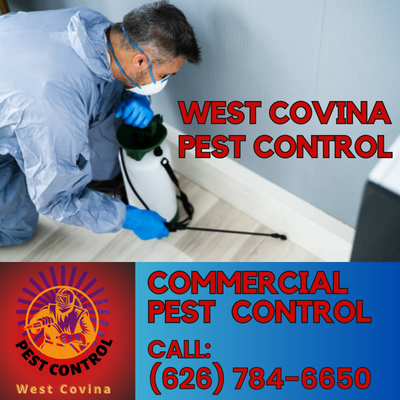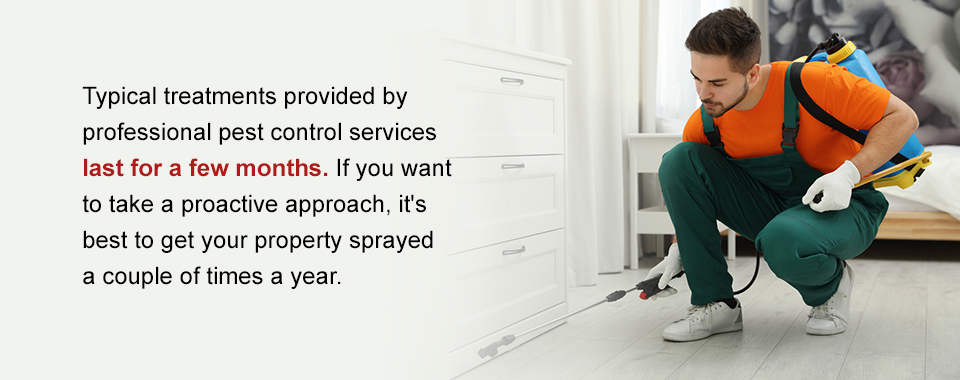Top-rated Pest Control Clovis Services: Your Peace of Mind
Top-rated Pest Control Clovis Services: Your Peace of Mind
Blog Article
Comprehending the Numerous Methods to Parasite Control: A Comprehensive Guide

Natural Bug Control Techniques
Utilizing environment-friendly methods such as companion growing and organic pest control is essential for properly handling pests in farming settings. Friend growing entails expanding different plants in distance to deter parasites, improve nutrient uptake, and improve total crop wellness.
Organic pest control entails introducing all-natural killers or virus to control pest populaces. Ladybugs, for example, prey on aphids, managing their numbers without the demand for chemical pesticides. One more instance is using Bacillus thuringiensis (Bt), a germs that targets specific insect parasites while being safe to humans, pets, and advantageous bugs.
These environment-friendly methods not only lower the reliance on artificial chemicals however additionally help protect biodiversity and dirt health and wellness. By including natural insect control approaches into farming techniques, farmers can achieve lasting pest monitoring while minimizing adverse effect on the atmosphere.

Chemical Insect Control Solutions
Along with all-natural pest control methods, the usage of chemical bug control remedies plays a significant function in successfully taking care of pest populaces in farming settings. Chemical pest control solutions are formulated to target particular insects that may cause comprehensive damage to crops. These services commonly consist of artificial chemicals that are created to remove bugs quickly and efficiently.
Among the key advantages of chemical bug control solutions is their effectiveness in managing pest invasions widespread. Farmers can apply these solutions utilizing different techniques such as spraying, fumigation, or seed therapy to shield their plants from dangerous bugs, weeds, and conditions. Additionally, chemical parasite control remedies are fairly simple to apply and can provide quick outcomes, helping farmers protect their yields and decrease financial losses.
Nevertheless, it is vital to use chemical bug control services judiciously to minimize possible negative impacts on the atmosphere, non-target organisms, and human wellness. Appropriate application strategies, adherence to security standards, and routine surveillance are important to ensure the accountable use chemical insect control remedies in agricultural techniques.
Biological Insect Control Approaches
Biological bug control comes close to utilize all-natural predators or microorganisms to take care of parasite populaces in farming setups properly. One common biological control approach is the introduction of all-natural adversaries, such as ladybugs or parasitical wasps, to target details parasites.
An additional organic control approach entails making use of virus like microorganisms, infections, or fungi to infect and kill parasites. These microbial representatives can be splashed on crops or introduced right into the soil to fight various pests without damaging advantageous insects or various other wild animals. Furthermore, making use of scents to interfere with the breeding patterns of parasites is one more effective organic control approach. By hindering their reproduction, this method aids to decrease pest populations without the demand for chemical treatment. Generally, biological parasite control strategies use a sustainable and targeted solution to pest monitoring in agriculture.
Integrated Parasite Administration (IPM)
Integrated Parasite Administration (IPM) is a comprehensive method that integrates numerous pest control methods to effectively handle and decrease pest populations in agricultural systems. IPM concentrates on long-term prevention of pests via a combination of biological, social, physical, and chemical control approaches. By integrating these different techniques, IPM intends to reduce reliance on chemical pesticides, minimize ecological effect, and advertise lasting pest administration methods.
One secret aspect of IPM is making use of organic controls such as natural killers, bloodsuckers, and virus to regulate insect populations. This technique uses the power of nature to keep an equilibrium between pests and their why not look here all-natural enemies without causing harm to the atmosphere.
Furthermore, IPM includes cultural methods like crop turning, environment, and sanitation adjustment to produce undesirable conditions for insects and disrupt their life cycles. Physical controls such as barriers, catches, and composts are additionally made use of to stop bug invasions.
Physical and mechanical Bug Control Methods
Utilizing non-chemical approaches, such as physical and mechanical insect control strategies, is an important aspect of comprehensive parasite administration techniques, building on the structure of Integrated Bug Management's all natural technique. Mechanical insect control involves making use of physical barriers or catches to avoid insects from accessing and harming crops or structures. This technique can include strategies like installing displays on windows, making use of row covers in agriculture, or using sticky traps to capture bugs.
Physical parasite control techniques, on the various other hand, concentrate on browse this site straight eliminating parasites with physical methods. For example, making use of warm therapies to eliminate bed pests or vacuuming up insects like ants or spiders can be reliable ways to handle invasions without using chemicals. By incorporating these mechanical and physical parasite control techniques right into an Integrated Parasite Administration strategy, people and professionals can reduce reliance on chemicals while still effectively decreasing and managing pest populations damages.
Verdict

In enhancement to natural parasite control techniques, the usage of chemical parasite control options plays a significant function in effectively taking care of pest populations in farming atmospheres.One of the key benefits of chemical pest control remedies is their efficiency in regulating insect problems on a big range.Integrated Pest Monitoring (IPM) is an extensive strategy that integrates numerous insect control approaches to efficiently take care of and reduce pest populaces in agricultural systems.Using non-chemical approaches, such as mechanical and physical parasite control techniques, is a critical aspect of thorough pest administration approaches, building upon the foundation of Integrated Parasite Management's alternative technique. By incorporating these mechanical and physical bug control strategies into an Integrated Insect Monitoring strategy, individuals and experts can lower reliance on pesticides while still efficiently reducing and handling pest populaces damages.
Report this page